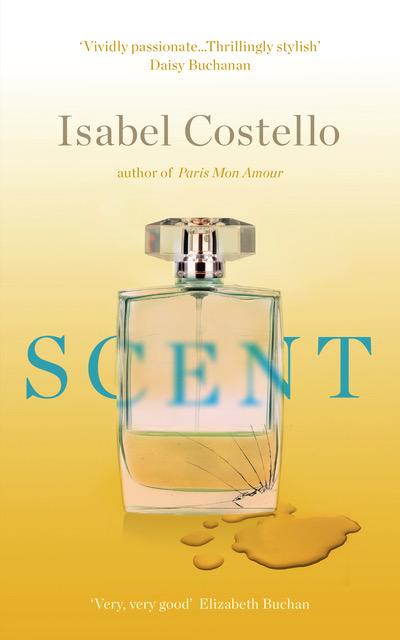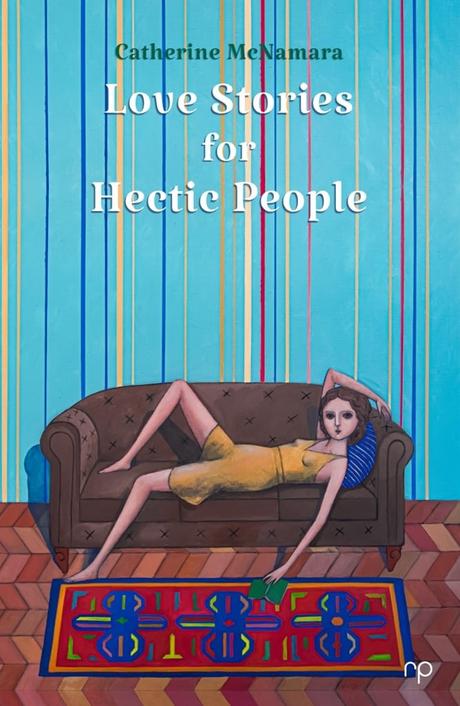 To celebrate publication of my second novel Scent and the reissue of my debut Paris Mon Amour by Muswell Press, something very different’s happening today: for the first time ever, I am the guest on my own Literary Sofa and my good friend, short fiction maestra Catherine McNamara is playing host – we could have talked for hours!
To celebrate publication of my second novel Scent and the reissue of my debut Paris Mon Amour by Muswell Press, something very different’s happening today: for the first time ever, I am the guest on my own Literary Sofa and my good friend, short fiction maestra Catherine McNamara is playing host – we could have talked for hours!
*
CM: Reading Scent, and also Paris Mon Amour, I couldn’t help thinking of the first words from Dante Alighieri’s Inferno, so often spoken in Italy: Nel mezzo del cammin di nostra vita.. Which goes on to say, ‘When I had journeyed half of our life’s way/I found myself within a shadowed forest/for I had lost the path that does not stray.’ Unusually, you are not afraid of this taboo terrain of middle age and present the reader with characters enmeshed in flawed lives, families that function poorly, protagonists like Clémentine who have lost their way. What is it that interests you about this zone of our lives?
IC: To me ‘midlife’ is more than a theme; it’s come to feel like my home terrain as a writer, and that largely arises from my frustration over sexual double standards. Women are routinely erased, dismissed and de-valued from the relatively early age of 40, and several decades of our lives are under-represented in fiction (as elsewhere), especially given the demographics of who actually reads it. Both of my novels feature younger people too because I’m interested in how we become who we are, but I see that as a continuing process rather than a final destination.
There’s a widely held perception that midlife is stagnant, uneventful, that everything is set in stone – and sure, it can be – but that runs counter to many women’s experience. One friend described this phase of life as ‘seismic’- Clémentine is 46 and that’s certainly how it feels to her when the classic issues of midlife for women start to pile up. I wanted to explore this intense period of change and re-evaluation; a heightened awareness of time passing/remaining can be painful but also liberating and a bridge to what we really want from the rest of our lives.
CM: Early in Scent Clémentine says, ‘I’m not going to be one of those women who thinks they can have it all.’ Though you have woven this comment into a complex set of circumstances, there is something in Clémentine’s words that addresses the reader. What does this say to us about contemporary womanhood and particularly the idea women are often fed, about ‘having it all’?
IC: For me ‘having it all’ (like the related idea of the ‘perfect life’, which also comes up in the novel) is a soundbite, a myth that collapses the moment you try to deconstruct it. Human nature is far too complex, we exist in too many dimensions, our various desires and ambitions often tricky to reconcile. The ‘liberation’ of women from the purely domestic sphere of previous generations is obviously a great thing but without genuine equality in relationships, parenting and the workplace, there is far to go, as the pandemic has highlighted. Women are judged differently to men and face different expectations and criticism on every score. This can lead to being harsh on ourselves and each other and the ideal of perfection is responsible for a lot of unhappiness, especially as it’s hard to open up about how we really feel. I wanted to get behind the scenes of a life in which Clémentine ostensibly has it all – I love writing in first person for the access it gives to the hidden interior.
CM: Your protagonists are fit, groomed francophone women who are embedded in worn marriages (with the appearance of fractious offspring,) yet both Alexandra (Paris Mon Amour) and Clémentine (Scent) follow their sexual yearnings into situations that threaten to overturn their lives. In Scent, Clémentine returns to a bisexual past she has kept submerged through her marriage. We feel a sensation of unearthing as she revisits her sensuality; her occupation as the creator of bespoke perfumes is a refraction of the redolent southern past she has suppressed. What do you think of the way sensuality and sex are represented in today’s crop of books?
IC: A recent favorite is Monique Roffey’s gloriously sensual Mermaid of Black Conch, a poignant and magical story with great Caribbean ambience. There’s some great fiction by (and about) younger women who write about sexuality in a direct and unapologetic way which I admire: for example the new releases from Melissa Broder, Daisy Buchanan and Francesca Reece. Being a woman who shows an open interest in sex(uality) is to subject yourself to all kinds of assumptions (have I mentioned double standards?) but that will never change if we don’t do it.
Personally I’d like to see more fiction in which female sexuality is portrayed as a force of its own and involving pleasure – so often the focus immediately reverts to what men want, or take. In hindsight, this may be why I wrote a love triangle in which the man fades out in the Provence thread when Clémentine and Racha are twenty years old. A love story between two women can’t help but place female desire center stage, and I’m happy to see signs of mainstream fiction becoming slightly less heteronormative. There is a steady stream of excellent non-fiction on sexuality; my current read is Katherine Angel’s intellectually rigorous Tomorrow sex will be good again on desire and consent in the MeToo era. I often find the non-fic more relatable due to the rarity of women in their late 40s and beyond being portrayed as still sexual. With Scent, I guess it boiled down to ‘writing the novel you’d like to read’ – I want our lives to be acknowledged and I’m in a position to do something about it. I’m just one voice though – we need many.
CM: I spent my early adulthood in Paris and adored the ode to la Ville Lumière that appears on nearly every page of both of your novels – a real, gritty, bomb-fearing, ex-colonial, painfully exquisite, iron-balconied Paris, with an accurate array of characters. The reader feels your genuine understanding of and deep affection for French culture. How did you feel about portraying a French protagonist in Scent?
IC: That’s very gratifying, thank you! It’s interesting you raise this because with Paris Mon Amour I didn’t yet have the confidence to write a French protagonist but when it was well received – by French readers too, the acid test – I no longer hesitated. France has always been a huge part of my life, I speak the language and have many friends there with whom I regularly debate things at length – I love its beauty and glamour but omitting its dark side wouldn’t be a true or very interesting representation of the place my characters and I know. And as in real life, every character experiences it in a different way. My job is to paint them as complex individuals with their own unique set of desires, struggles and personal traits, a product of their background but also more. At some level those fundamental questions transcend nationality and the boxes society tries to squeeze us into.
CM: You used an interesting Kierkegaard quote before Clémentine begins her journey towards the figures of her past: ‘Life can only be understood backwards but must be lived forwards.’ Later we will see that love traverses time, class barriers, family, social mores. What are the sensations that you would like to leave with your readers?
IC: It’s funny, I don’t write with the conscious aim of provoking any particular response, partly because I don’t think that’s possible and also because I don’t want to censor myself. People bring their own individual experiences, beliefs, etc to the act of reading. I’m always amazed and intrigued by what different readers take from the same book. That said, after the year we’ve all had, I imagine Clémentine’s reflections on what really matters to her will resonate, along with the importance of emotional connection and learning to show vulnerability, which is often the key to achieving that. I hope Scent transports the reader to France – no small thing! – and that the joy I found in writing it during three seismic years of my own life rubs off in some way.
*
Thank you so much to Cat for her close reading of my novels and these thoughtful, searching questions which are almost a review at the same time – this post was her idea and I knew she’d be a great host after our previous lively discussion on Writing about Sex and Desire in 2018. I thoroughly recommend her new flash collection Love Stories for Hectic People, from Reflex Press.


